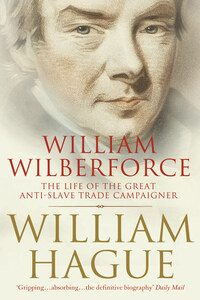On the morning of Tuesday, 9 June 1778 huge crowds gathered in the centre of London. People came in their tens of thousands, despite the pouring rain, to line the streets and windows around the old Palace of Westminster. ‘The concourse of people assembled’, wrote one of the following morning’s newspapers, ‘was beyond belief: the windows of all the houses, and even tops of some were crowded; as were the streets, though the spectators had been not only exposed to the rain for several hours, but to stand in dirt and wet nearly to the ankles …’>1
From the entrance to Westminster Hall in New Palace Yard, through Parliament Street, Bridge Street, King Street and then the Broad Sanctuary outside the Great West Door of Westminster Abbey, they waited for hours; some noisily, regarding it as ‘a scene only of festivity’, some quietly, as they ‘indulged a patriotic sigh to the memory of their country’s protector’.>2
At two o’clock in the afternoon those with a view of the North Door of Westminster Hall saw the procession emerge. First the High Constable of Westminster, then the messenger to the College of Arms in a mourning cloak, soon afterwards seventy poor men in cloaks with black staves in their hands, then a Standard, then a long line of servants. Eventually came a great banner and a coronet on a black velvet cushion and then the coffin, covered in a black velvet pall, adorned with the Arms of the deceased and borne by eight gentlemen.
The previous day an estimated hundred thousand people had filed through the black-draped Painted Chamber of the Palace to see the same coffin lying in state. For these were the remains of the Earl of Chatham, known to a previous generation before his ennoblement as ‘the Great Commoner’, and to a later generation accustomed to the fame of his son as the elder Pitt. He had ended his turbulent and unpredictable career with the most dramatic possible exit, collapsing in the House of Lords while denouncing the mismanagement of the war with America, and had died in May, a month later. He had been a dominating figure, the great political leader of his time. Whatever mixture of curiosity, gregariousness and reverence had brought vast numbers to line the route of his funeral procession, there is no doubt that every single one of them knew something of his life, achievements and opinions.
Among his contemporaries, the elder Pitt had excited every feeling from adoration to contempt. To the court of King George III, already in the nineteenth year of what would be a sixty-year reign, Chatham was impudent, unreliable and inconsistent. He had switched royal patrons in the 1740s out of opportunism, had been unable to work with the King’s favourite Minister in the 1760s, and having schemed for years to return to office and regain his power, had retreated into hypochondria and depression once he was back. In the 1770s he had opposed the war with America, giving moral support to a colony in full rebellion, and had heaped scorn on the policies and Ministers of His Majesty. To the King he had been ‘a snake in the grass’,>3 and to other critics he was guilty of ‘prevarication, self-contradiction, disregard of truth, mad ambition, mean popularity, pride, and the most intemperate passion’.>4 Few tears would be shed at Windsor, or among the supporters of the increasingly embattled administration of Lord North, that this powerfully persuasive voice was now forever silent.
Yet to many others this man who had so offended the King was the greatest figure in politics in their lifetimes, a man who had rescued an outnumbered nation from military defeat and vanquished her enemies, particularly the French, in the Seven Years’ War, the greatest war they had ever known. To them he was ‘that great and glorious Minister, who, to all succeeding ages, will be quoted as an illustrious example, how one great man, by his superior ability could raise his drooping country from the abyss of despair to the highest pinnacle of glory, and render her honoured, respected, revered, and dreaded by the whole universe’.









